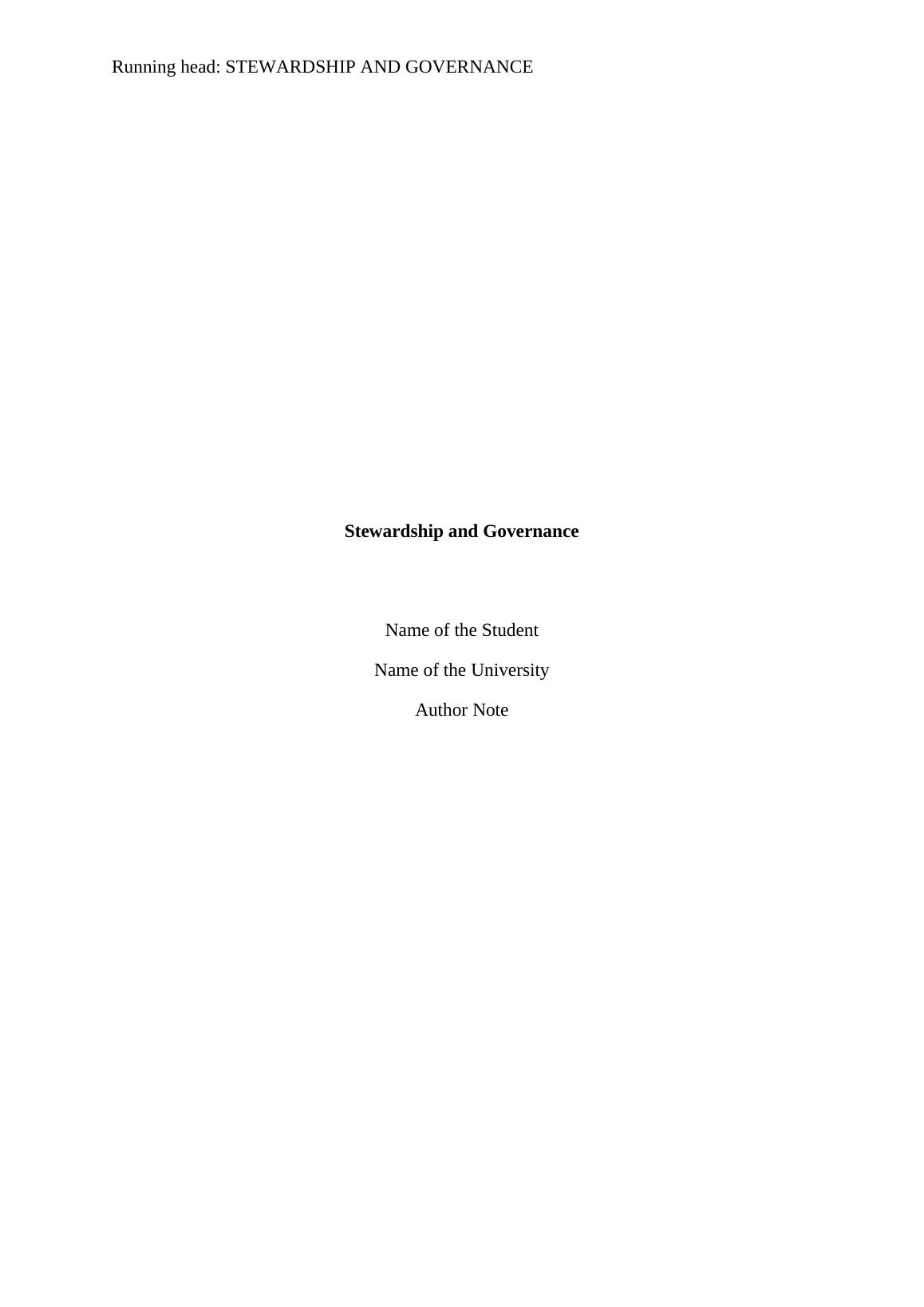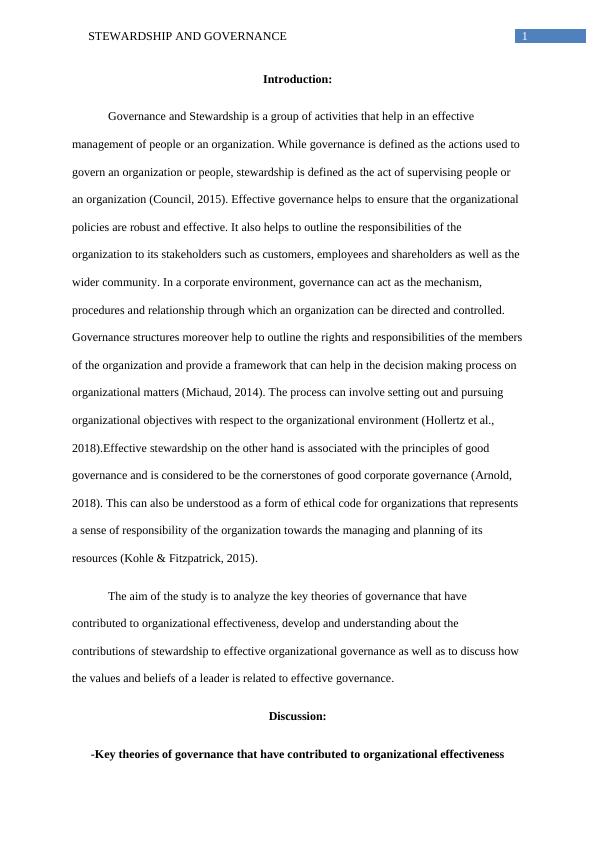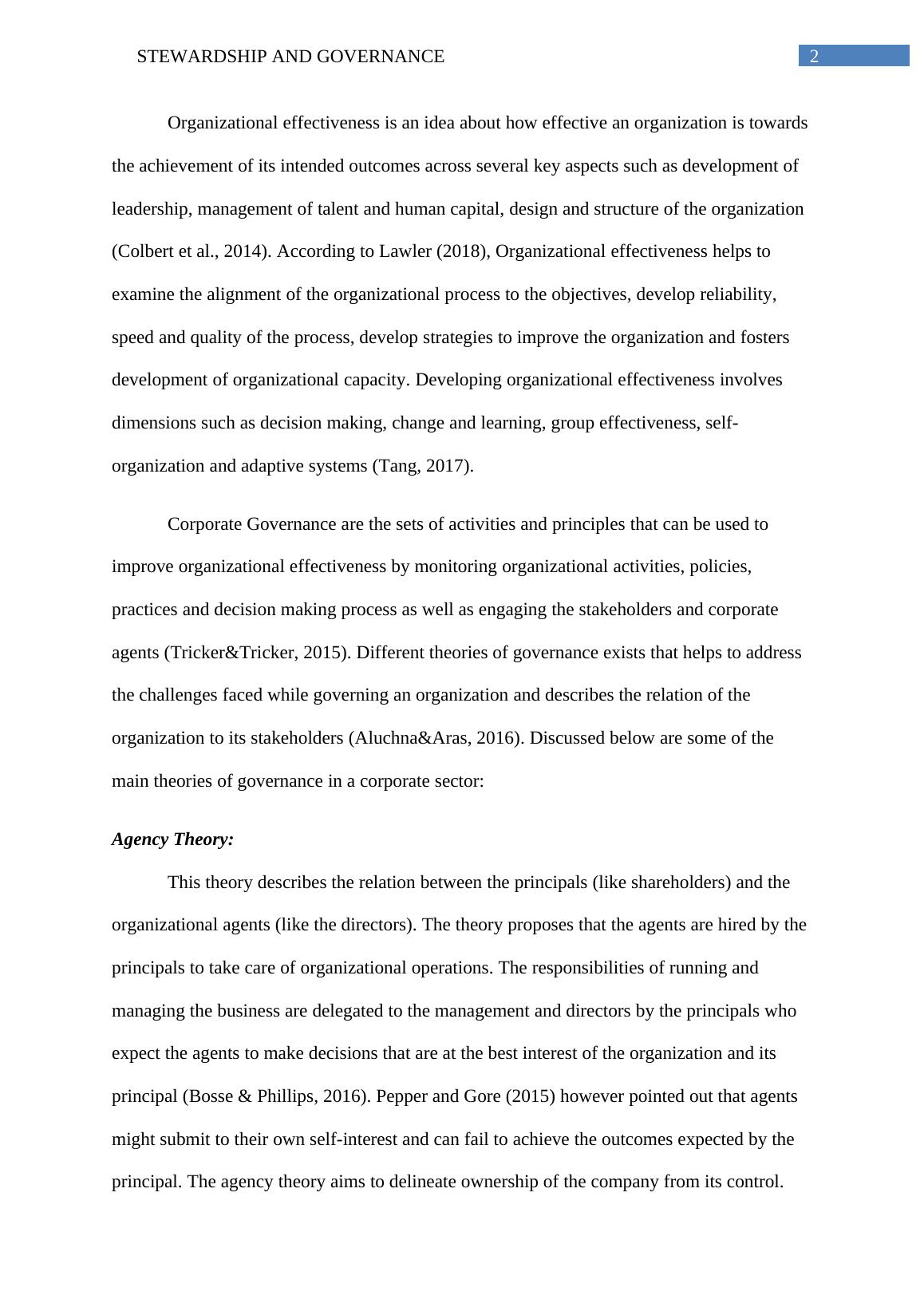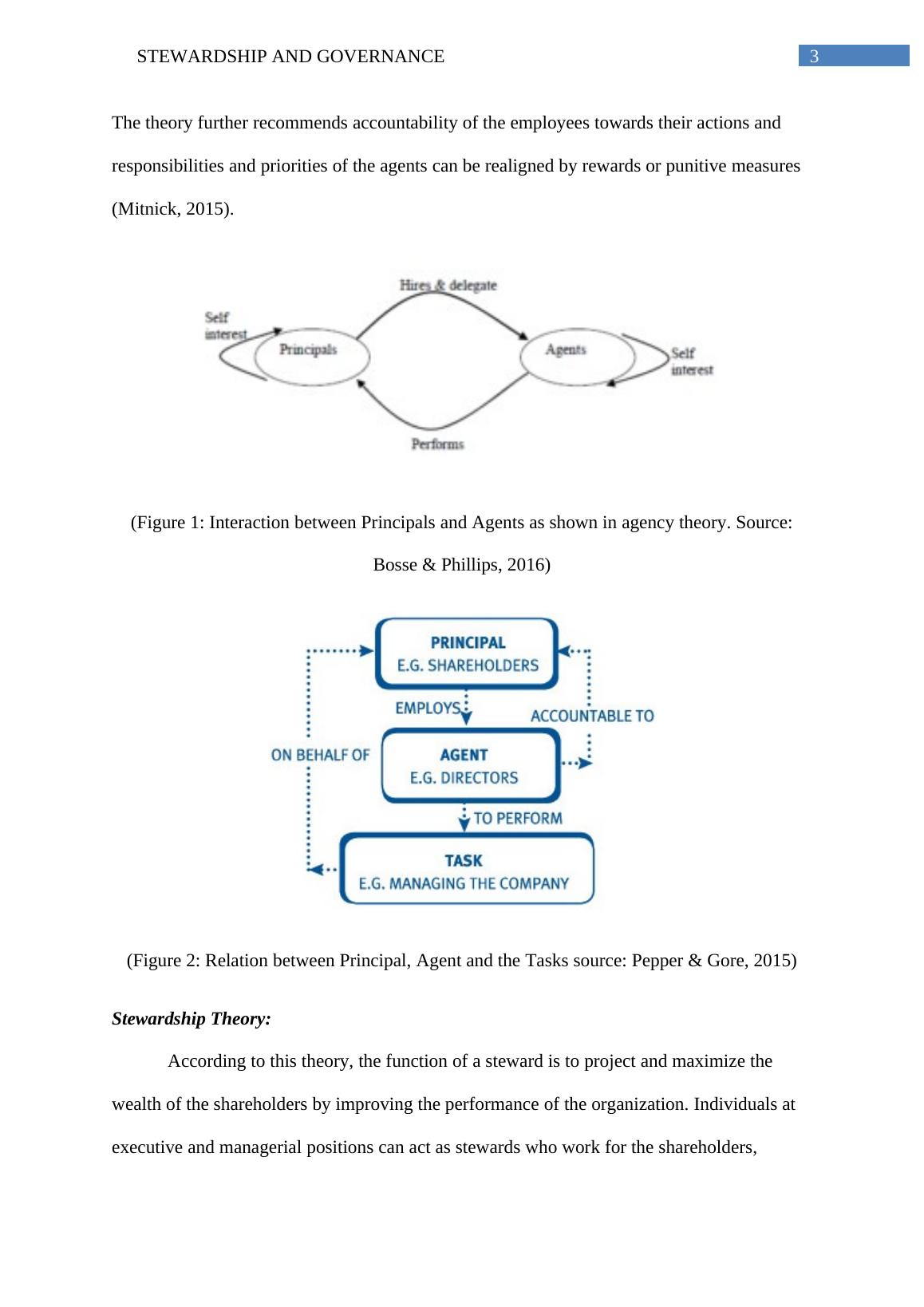Stewardship and Governance
19 Pages4426 Words360 Views
Added on 2023-04-21
About This Document
This article discusses the key theories of governance and the contributions of stewardship to effective organizational governance. It also explores the relationship between a leader's values and beliefs to effective governance.
Stewardship and Governance
Added on 2023-04-21
ShareRelated Documents
End of preview
Want to access all the pages? Upload your documents or become a member.
Governance and Stewardship
|13
|3023
|399
Corporate Governance and Stewardship - Doc
|12
|3429
|166
Corporate Governance Assignment
|14
|4258
|27
The role of leadership values and beliefs in effective governance
|9
|3012
|256
Governance and Stewardship in Business Assignment
|12
|3049
|47
Governance And Stewardship In Organizations Assignment
|10
|3354
|18




